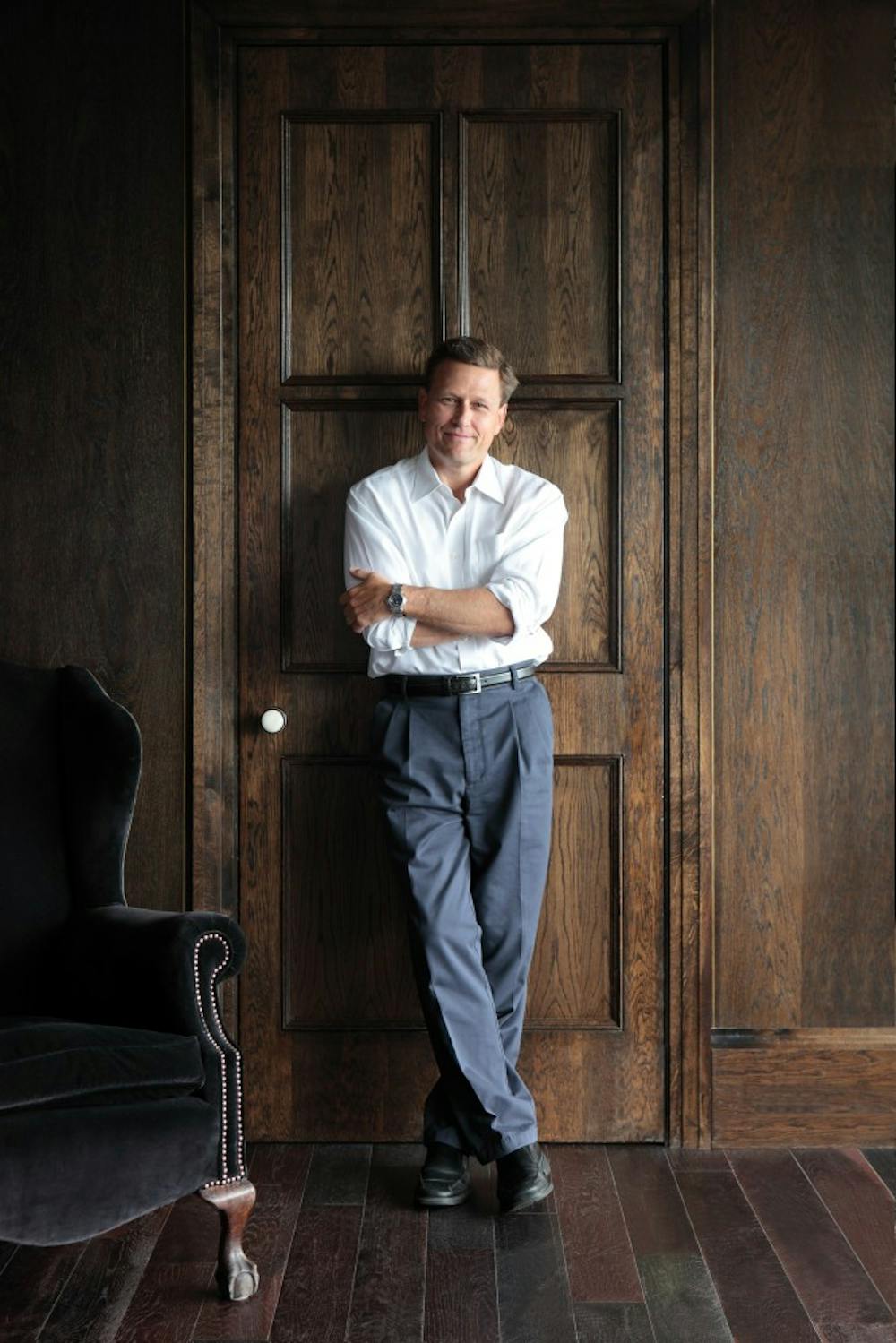Last week, the Virginia Foundation for the Humanities hosted the 20th annual Virginia Festival of the Book, a five-day event bringing together various speakers, writers and readers to promote books and literacy culture. Beginning in 1994, the festival has grown to include more than 200 programs for adults and children in the Charlottesville area.
Special programming included a luncheon with bestselling author David Baldacci. Born and raised in Virginia, Baldacci graduated from the Law School 1986 and has since written numerous successful novels, topping The New York Times bestseller list. On March 20, he spoke at the Omni Hotel about his travel stories and experience as an author. Arts & Entertainment had the opportunity to talk to Baldacci about his time at the University and advice on becoming a writer.
Arts and Entertainment: Why did you decide to participate in the Virginia Festival of the Book this year?
David Baldacci: I’ve been to book festivals around the country and this is probably one of the best, if not the best, festival we have. I’ve had a long history with the Festival, a long history with Rob Vaughan [president of the Virginia Foundation for the Humanities]; I was on the board for the Virginia Foundation for the Humanities for a number of years too … so [there are] a lot of personal connections. I know how important festivals are to communities. They bring a lot of people in, a lot of good ideas are exchanged, and they bring authors and readers together — it’s all positive.
AE: How has your experience with U.Va. Law influenced your writing?
Baldacci: The whole time I was here for law school, I was also writing short stories. My classmates were trying out for law review and I was working on my stories, being solitary and reading a lot. … You’re taught in law school to really think, problem solve, and get through obstacles. It was a great learning experience and being a lawyer has really helped me as a writer.
AE: What was your favorite part of U.Va. or Charlottesville during your time here?
Baldacci: Even though we were on the North campus of the Law School, which were beautiful grounds, I would go to the main campus all the time. … It’s a beautiful campus. I love to people watch. Most writers do, so I love to walk around and imagine what people are saying.
AE: Has that influenced your writing as well?
Baldacci: Absolutely. Writers have a lot of attributes and skills. One of the chief ones is you have to be curious of everything all the time.
AE: Following that, do you have any advice for students who are considering being an author?
Baldacci: Keep in mind that virtually all entertainment we have, writers create. You don’t have to be a novelist. You can write the scripts for video games, you can [write] stage plays, you can write for television, you can write webisodes for the Internet only, you can write novels, you can write for movies — the list goes on and on and on. Writing is creative so you create content, whatever it might be and wherever it might be displayed. Your choice is almost limitless if you want to go into writing. I would say read a lot and ask yourself why you want to be a writer. Do you enjoy putting words down on a piece of paper? Will you be content to write and write and write year after year in total obscurity, get rejections and it seems like nothing’s going right for you, but you keep going? If the answer to that is “yes, you will,” then you should be a writer. It’s a very Darwinistic thing because those who aren’t supposed to be [writers] never stay with it long enough because it’s too hard.
AE: Did you have any struggles becoming a writer?
Baldacci: Absolutely. I got rejection after rejection after rejection. I spent 15 years writing short stories and collecting more rejections that I would ever care to admit. … You never get to master the craft; you’re an apprentice for life. Everyday is hard. Just because I’ve written 30 novels doesn’t mean I know what I’m doing. … For most other professions, you get really good at it as you do the same thing over and over again. I wouldn’t want to be on a plane with a pilot in the cockpit [saying] “I’ve flown this plane for 30 years and today I’m going to try something new.” I wouldn’t want to be on that plane, but as a writer you constantly have to challenge yourself to do something different. Otherwise you lapse into a formula, get complacent and you do what you’ve always been doing as opposed to [thinking], “What can I do differently?”
AE: You’ve talked a lot about spurring creativity and doing something different — what methods do you use to get inspiration?
Baldacci: Take yourself out of your comfort zone. I tell people, don’t write about something you necessarily know a lot about. Write about something you’d like to know a lot about, then you go out and you learn about it. … Trust me, agents and publishers have sledge piles like you wouldn’t believe of people who are writing because they want to be a bestseller, who are writing because they hate their day job, who are writing because they are chasing the next trend. … You need passion to come through in the pages, because otherwise you’re going to stay on the sledge pile and the sledge pile is filled with people who are writing for all the wrong reasons. You need to figure out your voice, what you want to say, and what you want to write about. Just go do it, have fun with it and it’ll come through in the pages.
In the spirit of writing something new, Baldacci recently released a young adult novel titled “The Finisher” and is set to publish his latest thriller, “The Target” in April.





